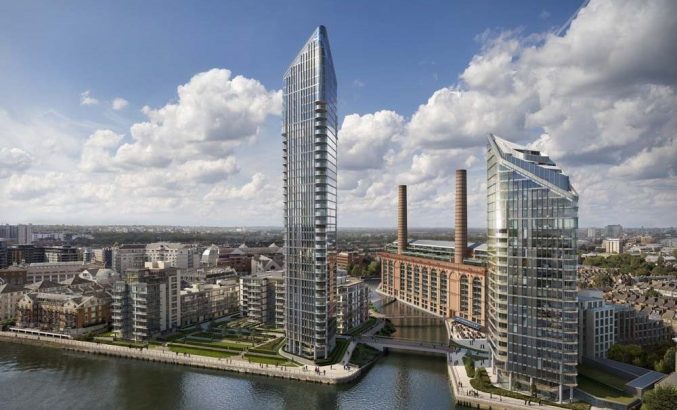Property Investments in Emerging Markets
By Bridging Loan Directory
By guest author Paul Ibbotson, Director, Emerging Market property
‘Emerging Markets’ is something of a buzz phrase in the alternative investment world at the moment. Investors and their advisers seeking the potential for higher returns to balance lower yielding mainstream investments have been drawn in recent months to consider investment in the world’s emerging economies.
But for the investor seeking such investment opportunities, two key questions arise:
• How do I access emerging markets; and
• Which emerging market should I choose?
How to gain access to emerging economies
Almost by definition, capital markets in emerging economies are relatively unsophisticated, often small and illiquid and in some cases vulnerable to market abuses because of inadequate regulatory regimes. Many equity capital markets in emerging economies have seen extreme volatility and some restrict direct access to listed stocks by foreigners.
Direct private equity investment is often extremely difficult to achieve without detailed knowledge of the jurisdiction involved and the barriers to entry in terms of the cost of due diligence can be formidable.
Historically, investors seeking access to emerging markets have concentrated on property. Direct property ownership, especially of second homes, has been a popular investment choice, especially as in many cases the investment is also a ‘lifestyle purchase’ enabling the investor to have the use of his or her investment for holidays for themselves, family and friends. But even direct property ownership is not without its problems.
Investors have to make often costly arrangements for maintenance of their asset and for lettings where rental income is sought. If an investor is seeking to build their own property then – while returns can be enhanced – the development process can be difficult to manage, especially from overseas, and the planning and legal regimes in some emerging markets can present pitfalls for even the most sophisticated property investor. Some classes of investor (UK investors investing via their SIPPs, for example) are also restricted by HMRC rules from using their investment property personally.
The alternative UCIS market has seen a number of funds that aim to invest in property development in emerging economies. These funds can offer a good alternative to direct investment in assets and, provided the developer and fund manager are experienced and professional, can insulate the investor to some extent from the challenges and problems of direct property ownership. Sometimes, such funds are little more than widely dispersed project financings: their purpose is to develop a single asset and liquidate it. Other funds have a greater range of underlying assets, offering a degree of risk management through diversity.
Typically, such property funds have tended to be closed-ended, restricting both liquidity and exit options for initial investors and also the opportunity for investors to come in at a later stage when the fund and the developer have established a track record.
Recently, some asset managers and developers have begun to offer products to the alternatives/UCIS market that try to address some of these structural concerns. We are seeing funds launched which are open-ended, with liquidity facilities underpinning redemption rights for investors. Yields in emerging markets ought generally to be sufficient to absorb part of the fund’s assets being held in cash or liquid instruments to allow reasonably free trading in and out of the fund, without diluting overall returns too greatly. Of course, it is not possible to overcome completely the inherent illiquidity of property investment and only investors who understand such risks should consider making emerging market property investment part of their portfolio.
Investment in development projects, as opposed to mature property assets, carries its own benefits and risks. By its nature, property development creates value for the investor during the development life-cycle through planning gain and profit in the construction phase. An investor in mature, income producing property assets, on the other hand, is more directly exposed to the vagaries of the market for his or her return. As many investors have found to their cost, investment in mature assets and reliance on factors such as yield compression for capital growth can be a risky approach.
But property development does carry its own inherent risks. Essentially dependent for its profit on a small difference between two large numbers – the cost to acquire and develop and the income from realisation through sales or other disposal – the stresses on the expertise of the developer are considerable.
This makes it extremely important for an investor contemplating investment in property development to be confident in the developer and asset manager responsible for the developments. Potential investors should look for track record in the market concerned (not just a track record in ‘property development’) and, in particular, a track record which can demonstrate expertise at all stages of the market cycle. A developer who has managed assets and preserved value in a cyclical downturn is much rarer and more valuable than a developer that has only shown an ability to make hay while the sun shines.
Which emerging economy?
There has been a great deal of analysis in recent years of the potential of various emerging market economies. Famously, Goldman Sachs identified the BRICs (Brazil, Russia, India and China) as the harbingers of emerging market growth and has since coined the “N-11” (Next Eleven) group of emerging economies which it regards as having great potential over the next few decades. Much of the discussion has been based on macro-economic and demographic analysis and takes a long term view of developing economies, and is none the worse for that approach.
There are also, however, a number of emerging market economies where more near term factors offer the potential for growth within the typical private investor’s time-horizon. One example of this has been the European Union Accession Countries that have joined the EU in recent years. Investors who invested wisely in emerging markets such as Poland and the Czech Republic have seen good returns driven largely by movement of those economies towards Western European standards of economic management, legal systems and fiscal and monetary policies. There have, of course, been recent problems in such economies (as with much of ‘Old Europe’) caused by over-supply of credit and asset price inflation and subsequent correction. But the fundamentals of emerging economies joining a larger group of more developed nations and being subject to the disciplines that that entails are still worth consideration by those contemplating an investment in emerging economies.
A good example of a developing economy submitting itself to the disciplines of a broader group of nations is Croatia. Having missed out on the last two waves of EU accession because of disputes concerning national borders and human rights resulting from the break-up of the Yugoslav Republic (now resolved), Croatia is due to join the EU in the next two years. The process of accession to the EU has led to a complete change in many of the country’s economic, commercial and legal systems in order to comply with the the EU body of laws known as the ‘Acquis Communautaire’.
Croatia, like its neighbour Slovenia, seems to be culturally and historically more aligned with the nations of Western Europe than other Balkan nations and investors in the country are well supported by a network of international banks, law and accountancy firms and other professional service providers.
Like many emerging economies, historic growth trends in Croatia have been very positive, but the key to successful investment is in discrimination and careful selection of assets within the particular market. Typically, an emerging market will experience a first wave of investment capital which will concentrate on the most needed development, often driven by political considerations. Often, follow-up investment is lacking.
In Croatia, for example, there has been public sector investment in motorways, but little follow-up investment in logistics/distribution assets to support the basic transport infrastructure. Similarly, a lot of private sector capital has been invested in office, commercial and residential assets in the capital, Zagreb, leaving the regional centres such as Split and Rijeka undersupplied with development.
Which brings us back to the key question for investors considering investing in property in an emerging economy: does the developer with whom you are partnering understand the detail of the country you are looking to invest in and have the experience to identify the assets and markets most likely to offer decent returns?
Paul Ibbotson
Emerging Market Property
http://www.emergingmarketproperty.co.uk









